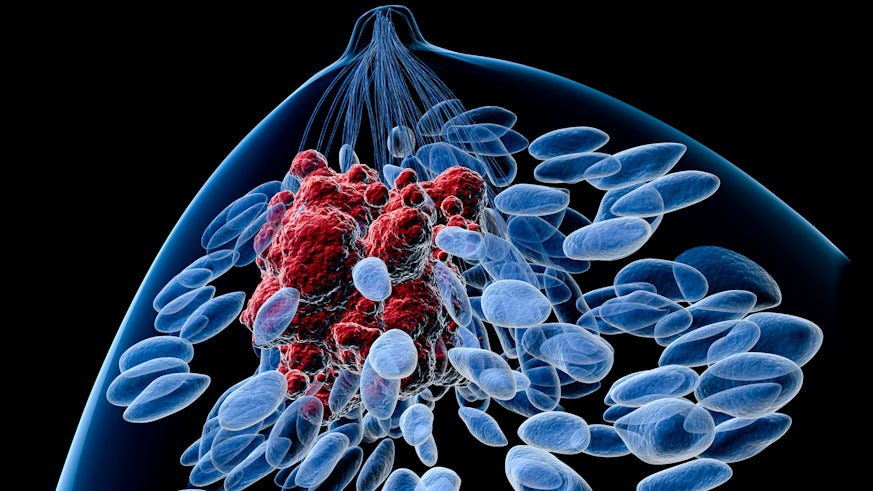Improving breast cancer treatment
10 June 2019

Millions of patients with incurable breast cancer could benefit from Welsh-led research which shows it is possible to control the cancer for twice as long by combing an investigational therapy with standard treatment.
Oestrogen receptive positive breast cancer can be treated by drugs, such as fulvestrant, that interfere with the action of oestrogen. Although these drugs are often effective for a while, the cancer can frequently become resistant and the drugs stop working.
In the trial, researchers investigated whether they could reverse or delay resistance to hormone therapy in post -menopausal women whose cancer had spread by adding the drug Capivasertib which neutralises a protein that has been shown to cause resistance to hormone therapy.
Dr Rob Jones, a consultant at Velindre and a reader in medical oncology at Cardiff University, said: “The results are extremely encouraging. We measured success primarily by determining how long the treatment prevented cancer growth, but also whether it resulted in shrinkage of the cancer and how long patients lived for.”
41 per cent of patients who received fulvestrant together with Capivasertib experienced a significant shrinkage in their cancer compared to 12 per cent of patients who were allocated to fulvestrant and a placebo. In addition, patients receiving the Capivasertib had their cancer controlled for an average of 10.3 months whereas for those who got fulvestrant with the placebo it was 4.8 months. The current trial data also suggests that patients treated with the new combination live for an average of six months longer.
One of the patients, retired doctor Susan Cunningham from Cardiff, was first diagnosed with breast cancer in 2005. She joined the trial in 2017 after she discovered her cancer had spread and was incurable.
“Unfortunately, in my family we have had to break news to my children that a family member has cancer six times. Two grandparents have died of cancer. Another grandparent has had cancer but has fortunately survived. I have had two cancer diagnoses.
Being on a trial has given me great hope for the future. It’s meant that I have been relatively well for the past two years. Initially I thought I wasn’t going to see my grandchildren but now I have hope that I am going to survive an awful lot longer and see my family grow.
Leaders of the study hope that the research will progress to a phase three trial, where the investigational combination will be tested in a larger number of patients, before any recommendations can be made to take it up as a new standard of treatment on the NHS.
Dr Jones concluded: “In the UK 55,000 new cases of breast cancer occur each year and about three quarters are oestrogen receptive positive breast cancers. That equates to millions of patients around the world that potentially are going to get benefits from this breakthrough.
“We are incredibly grateful to all the contributions that enable trials like this to happen. Over the years this has included about a million pounds from Velindre Charitable funds that has supported research staff to deliver all the trials on our Unit.”
The FAKTION trial involved 140 patients from 19 hospitals across the UK, and was sponsored by Velindre University NHS Trust. It is jointly led by Dr Rob Jones from the Velindre Cancer Centre and Cardiff University and Dr Sacha Howell from the Christie NHS Foundation Trust and University of Manchester.



